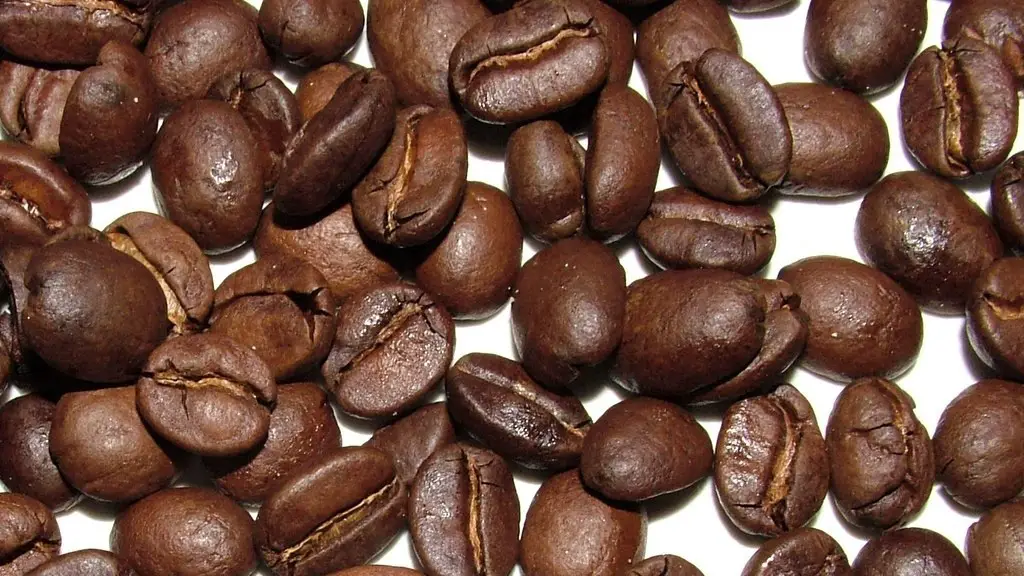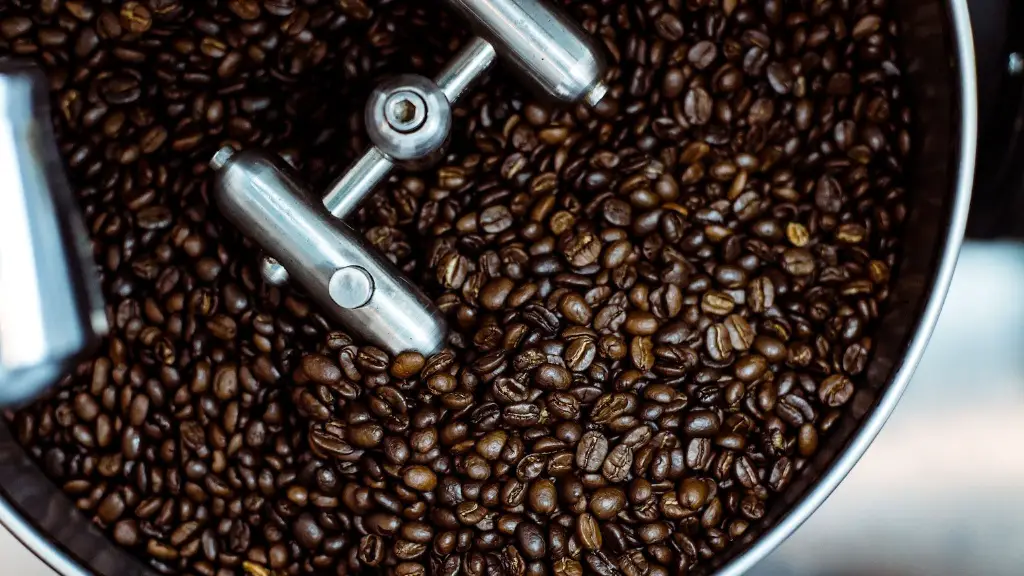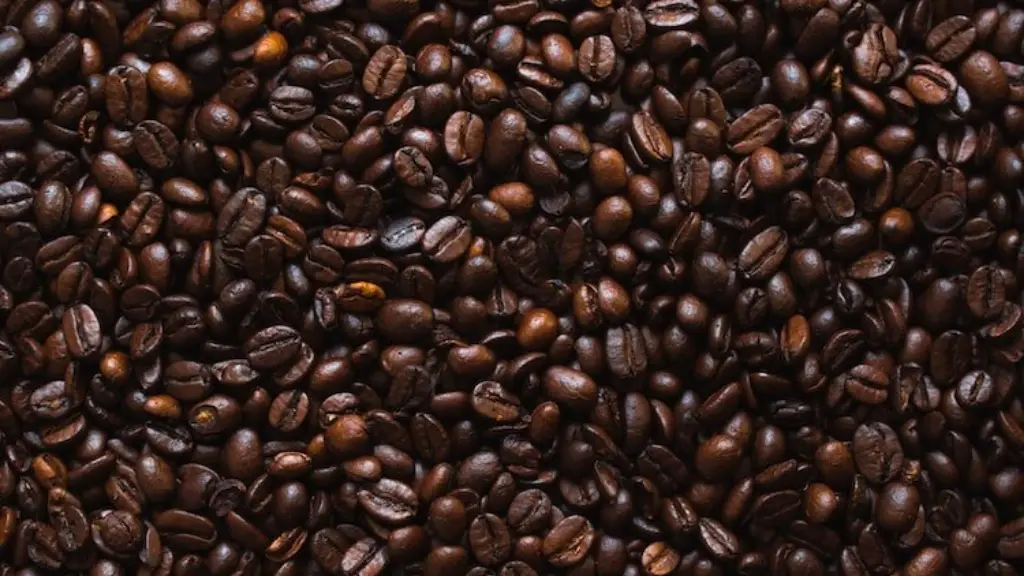In many cases, coffee beans will not rot if they are stored properly. However, there are some situations where coffee beans can rot, such as if they are stored in an airtight container that does not allow for air circulation. If coffee beans are stored in a damp environment, they are also more likely to rot.
Coffee beans do not rot, but they can go bad. Bad coffee beans will have a sour or off flavor.
Can I drink 10 year old coffee beans?
It’s safe to drink coffee made from old beans, but it won’t taste as good as coffee made from fresh beans. The old beans may have a musty or rancid aroma, but they won’t make you sick.
Coffee grounds take three to four months or more to decompose, depending on the soil microbial activity and health. The more microbial activity of the soil, the more quickly coffee grounds decompose.
How can you tell if coffee beans are bad
If you want to test if your coffee beans are fresh, simply place ½ cup of them into a ziplock bag, press the air out, and seal the bag. Leave the bag overnight and check on it in the morning. If the bag is puffed with more air, then the beans are fresh. If the bag is flat, then your beans are sadly past their prime.
Coffee doesn’t go bad in the same way that some foods do. That’s because coffee is a dry, packaged food. There is no firm expiration date to keep in mind.
Should I throw away old coffee beans?
Composting coffee beans is a great way to be eco-friendly and reduce waste. Coffee beans can be composted at home or at a commercial composting facility. If composting at home, coffee beans can be added to a compost pile or bin with other organic materials like food scraps and yard waste. Coffee beans will break down and help create nutrient-rich compost that can be used in the garden. Commercial composting facilities may accept coffee beans and other coffee waste like used coffee grounds and filters. Contact your local facility to learn more.
Coffee will grow mold and bacteria if it is left out for too long. It is important to clean out your coffee maker regularly to prevent this from happening.
Can I put whole coffee beans in my garden?
It is best to add coffee grounds, not whole beans, to compost. Coffee grounds have a high nitrogen content, along with a few other nutrients plants can use. In compost, they help create organic matter that improves the ability of soil to hold water.
Coffee grounds are an excellent source of nitrogen for plants. They release nitrogen slowly over time, making it available for plants to use. Coffee grounds are also recommended as a soil amendment to improve soil structure. They should be used at a rate of 25 to 35% by volume.
Is coffee good for the soil
Adding coffee grounds to your soil can be a great way to add extra nutrients, especially nitrogen. Coffee grounds are also rich in other nutrients like potassium and phosphorous, so they can be a great way to fertilise your garden. Just be sure not to add too much, as too much nitrogen can actually be harmful to your plants.
If you have a opened a bag of roasted coffee beans, it is best to store them in an airtight container. This will help to keep the beans fresh for 6-9 months. However, if you have consumed some of the beans, it is best to finish them within six months. There are some methods to help extend the shelf life of coffee beans, but ultimately it is best to consume them within the six month timeframe.
Do dried coffee beans go bad?
If you have a opened a bag of roasted coffee beans, it is best to store them in an airtight container. This will help to keep the beans fresh and extend their shelf life. Once opened, coffee beans will last for 6-9 months. However, there are methods that you can use to boost coffee bean longevity.
There are many reasons why the American Academy of Pediatrics recommends limiting caffeine intake for children and adolescents. Caffeine is a stimulant that can lead to increased heart rate and blood pressure, as well as jitteriness and insomnia. It can also interfere with a child’s or adolescent’s natural growth hormone production, which can impact their height and weight. In addition, caffeine is a diuretic, which can lead to dehydration, and it can also interfere with the absorption of important vitamins and minerals.
Do whole coffee beans really expire
Storing coffee beans in an airtight container is the best way to keep them fresh. Coffee grounds can last a few extra months if stored properly.
If you’re looking to keep your coffee beans fresh for the next few weeks, it’s best not to freeze or refrigerate them. This can expose them to dampness and smells from other foods, which can affect the flavor of your coffee. Instead, store coffee beans in an opaque, airtight container and keep it in a dark, cool location, away from the stove or other heat sources. This will help to keep your coffee beans fresh and flavorful.
What are stale coffee beans good for?
Old coffee beans are great for making chocolate-covered espresso beans, tiramisu, coffee cake, coffee ice cream, and other coffee-flavored desserts. Desserts don’t rely on the freshest coffee beans to taste amazing, so old coffee beans work just fine.
If you’re a coffee lover, you might want to think twice before making your next cold brew. As it turns out, mold loves coffee just as much as we do. Mold spores need a food source, love moist dark areas, and grow quickly when they have the perfect environment. Unfortunately, the cold brew coffee equipment meet all of those criteria, making them the absolute perfect breeding ground for mold. If you do choose to make cold brew coffee, be sure to clean your equipment thoroughly and often to prevent mold from taking over.
Conclusion
Coffee beans do not rot, but they can go bad. If coffee beans are stored in an airtight container in a cool, dark place, they can last for up to two years. After that, the beans will start to lose their flavor.
The coffee beans will not rot if they are stored in a dry and cool place.





